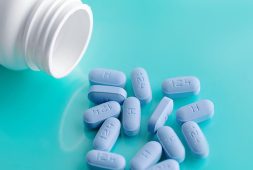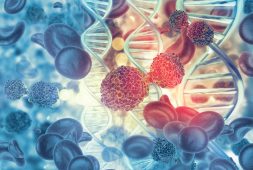
For over 4,000 years, green tea has been consumed in China and is considered to have several health benefits. This would include fat loss, improved brain function, lowered risk of heart failure, prevent type 2 diabetes, and reduce bad breath. On the other hand, it is reported that excessive drinking of green tea may cause liver and kidney problems, most likely due to the caffeine content.
But for enthusiasts of green tea, there is new research that the tea could prevent cancer because of one of its compounds. While it is known to be a source of powerful antioxidants, which reduce the risk of some cancers (colorectal cancer, breast cancer, prostate cancer), the new research focuses on a gene called p53, and its interaction with the green tea compound epigallocatechin gallate (EGCG).
Known as the “Guardian of the Genome”, p53 is classified as a tumor suppressor, for its ability to repair DNA damage, destroy cancerous cells, and block the development of tumors. If a person inherits only one functional copy of the p53 gene from their parents, they are predisposed to the disease.
Just this month, a new study published in Nature Communications shows that an antioxidant found in green tea may increase levels of p53 and improve its efficiency, according to scientists at the Rensselaer Polytechnic Institute in Troy, New York. The hope is to create a new drug to mimic the interaction between EGCG and p53.
The paper’s author, Professor Chunyu Wang, said, “Mutations in p53 are found in over 50% of human cancer.” He argues that this is the most important protein in human cancer. A state of the art scanning technique – nuclear magnetic resonance spectroscopy, showed that EGCG protects the cell structure’s “N-terminal domain” from degradation.
EGCG is abundant in green tea, and is a natural antioxidant. It helps undo the near constant devastation caused by oxygen metabolism. It is currently packaged by many companies as a herbal supplement.
Wang’s team was responsible for identifying the specific mechanism – the beneficial interactivity between EGCG and p53, for the first time. He explains, “when EGCG binds with p53, the protein is not being degraded…so the level of p53 will increase with the direct interaction. That means there is more p53 for anti-cancer function.”
Further explained, when operating at full capacity, p53 activates DNA repair mechanisms which prevent damaged cells from dividing. If DNA damage is irreparable, p53 convinces the cell to destroy itself through apoptosis, or programmed cell death. Since it is usually switched off in human cancers, reactivating the protein could potentially provide for an effective way of treating the disease in the future.
Aside from this, the findings also support other benefits of green tea, like reducing the risk of dementia and heart attacks. But then again, everything in moderation. A study presented evidence that a sample group of 100,000 older Chinese individuals who drank at least 3 cups of green tea a week, were 25% less likely to die over the next 7 years. But note that consuming 8 cups or over a day is unsafe and may have dangerous side effects.
The study has opened doors for further research on how to battle cancer. As the dean of the Rensselaer School of Science, Curt Breneman, puts it, “By developing an understanding of the molecular-level mechanisms that control key biochemical interactions linked to devastating illnesses such as cancer and Alzheimer’s disease, Chunyu’s research is laying the groundwork for new and successful therapies.”
It may take a while for scientists to fully realize the effects of green tea as a cancer prevention remedy, but drinking moderate amounts of the chinese herbal tea is surely beneficial. So for those not yet fans of green tea, give it a try, and you may just be pleasantly surprised.



